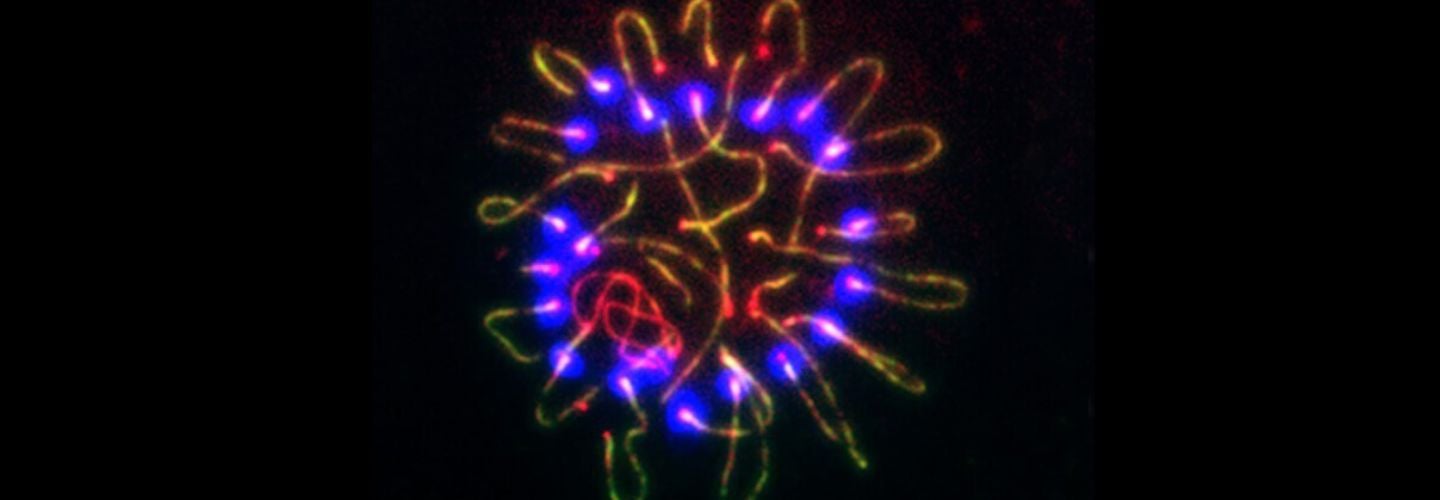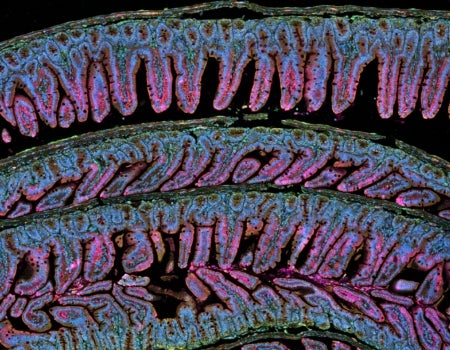Research Centers and Institute
Research Centers
Penn Vet's research centers are globally recognized for groundbreaking advances in comparative oncology, health and productivity in food animal herds and flocks, infectious disease, regenerative medicine, and neuroscience. In research that impacts humans and non-humans alike, Penn Vet leads the way in veterinary scientific investigation.
Research Centers
Penn Vet's research centers are globally recognized for groundbreaking advances in comparative oncology, health and productivity in food animal herds and flocks, infectious disease, regenerative medicine, and neuroscience. In research that impacts humans and non-humans alike, Penn Vet leads the way in veterinary scientific investigation.

Center for Animal Transgenesis & Germ Cell Research
The Center for Animal Transgenesis and Germ Cell Research’s primary mission was to undertake innovative research on stem cell biology, germ cell development, and animal transgenesis. The center provides a platform for intellectual interactions to facilitate research in reproductive biology across the school and the campus.

Center for Stewardship Agriculture and Food Security
The Center for Stewardship Agriculture and Food Security reimagines animal agricultural systems to secure a livable, sustainable, and more equitable future. The Center is an integral resource to national and global stakeholders dedicated to safeguarding animal and human health, agricultural production, ecosystems, food and nutrition security, and bolstering disaster resilience through its collective of multidisciplinary experts.

Penn Vet Cancer Center
The Penn Vet Cancer Center bridges the laboratory and the clinic for a collaborative approach to cancer’s biggest questions. The result is new dialogue and integrated frameworks that move toward one shared goal: the prevention and treatment of cancer in all species.

Penn Vet Working Dog Center
The Penn Vet Working Dog Center serves as a national research and development center for detection dogs. The Center’s goal is to increase collaborative research, scientific assessment, and shared knowledge and application of the newest scientific findings and veterinary expertise to optimize production of valuable detection dogs.

Penn Vet Swine Teaching and Research Center
Today the US swine industry is confronted with rapidly changing public opinion and policy on how gestating sows should be housed. Penn Vet is uniquely positioned to provide the industry with relevant scientific data from this living laboratory.
Research Institute
Institute for Infectious & Zoonotic Diseases
With niche strengths in immunology and host-pathogen interactions, Penn Vet is an integral part of the biomedical community at the University of Pennsylvania. The Institute for Infectious & Zoonotic Diseases brings a valuable and significant component to the investigation, surveillance, and prevention of zoonotic emerging and reemerging infectious diseases within local, regional, and global contexts.

